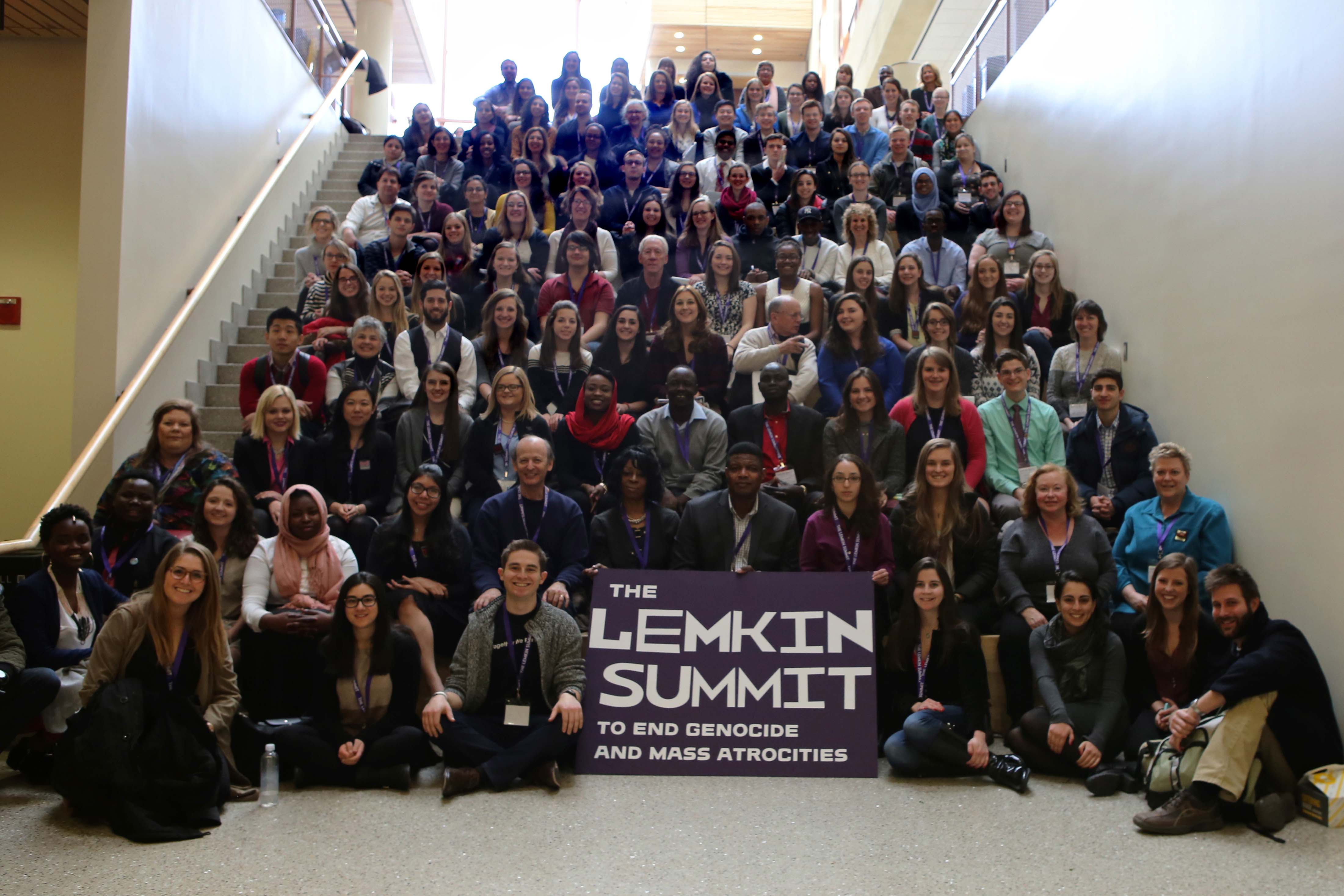
This past weekend, approximately 140 activists and student leaders in the anti-atrocity movement joined the Enough Project and Jewish World Watch for The Lemkin Summit to End Genocide and Mass Atrocities. During the three-day Summit, participants networked with one another, developed their advocacy skills, and engaged with experts on new approaches to ending and preventing mass atrocities in places such as the Central African Republic, the Democratic Republic of Congo, South Sudan, and Sudan. The summit culminated with more than 100 meetings with congressional offices.
Participants came from 26 States and D.C., as well as the UK. Participants represented 42 colleges and universities, 14 high schools, and 14 partner organizations.
The Summit’s theme was encapsulated on Saturday afternoon during a presentation by Senior Director for Development and Democracy at the National Security Council, Mary Beth Goodman. She highlighted the need to use financial tools as a way to cut off funding to perpetrators who carry out atrocities, as well as the importance of combatting corruption, a key destabilizer in conflict regions. Later that night, participants were joined by Filmmaker Paul Freedman for a screening of his new film, Merci Congo. Sunday’s program included a conversation with Brennan Gilmore, chief of staff to the Special Envoy for the Great Lakes Region Tom Perriello, as well as breakout conversations on combatting atrocity financing, private sector engagement, upstream prevention efforts, and developing mechanisms for accountability. Participants additionally spent time receiving advocacy and policy trainings, to equip them for their meetings with elected officials on Monday.
The Summit Keynote was a Skype discussion with U.S. Ambassador to the United Nations Samantha Power, moderated by John Prendergast. Ambassador Power encouraged the activists to continue pushing her and other U.S. government officials to keep these issues on the mattering map.
The final day of the Summit was an advocacy day on Capitol Hill, during which participants met with more than 100 Congressional offices, urging the House to pass the Global Magnitsky Human Rights Accountability Act (recently passed in the Senate) and the Senate to pass the Global Anti-Poaching Act (recently passed in the House), as well as to support the authorization of the Atrocities Prevention Board. Participants conveyed to those in the seats of power that genocide and mass atrocities are unacceptable both morally and legally, and that by utilizing non-traditional tools and innovative approaches for countering drivers of these crimes, it is possible to support efforts to engender lasting peace and security worldwide.
For a visual representation of the students' experience over the weekend through social media, check out the Storify below or click here.
Photo credit: Faith Horner.

